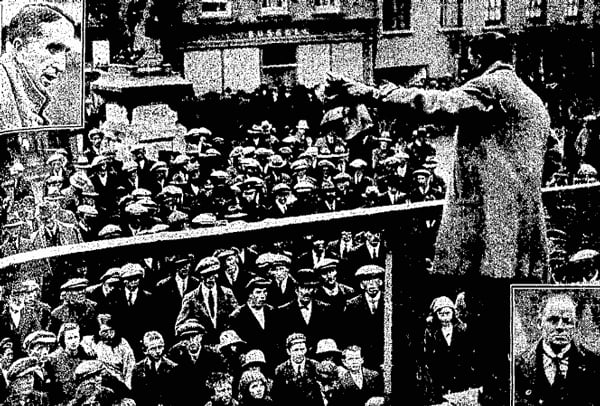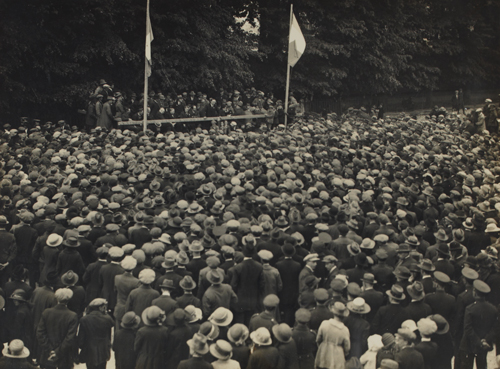150 candidates already declared as Dáil election edges closer
Dublin, 7 August 1923 - With a general election due to be held at the end of August, over 150 candidates have already either been selected or declared. This is despite selections having only been made in about one-third of the 26 counties. The breakdown of candidates as it presently stands is as follows:
Cumann na nGaedhael: 29
Anti-Treaty: 14
Labour: 24
Farmers’ Party: 31
Independents: 33
Unpurchased Tenants &
National Democratic Party: 6
Business Men’s Party: 4
Independent Labour: 3
Additional candidates are also expected to be put forward by the Town Tenants’ Association and, possibly, by a separate group to represent women’s interests specifically.
Furthermore, it has been clarified by the Irish Labour Party and Trade Union Congress that the Labour Party will put forward a total of 50 candidates, although less than half of that number, as noted above, have so far been selected.
While touring counties Cavan and Monaghan, President Cosgrave, who will once again contest for a Dáil seat in Kilkenny, told a meeting that while the death of Arthur Griffith was the biggest price that had been paid for the freedom they now enjoy, £200,000 had been robbed over the previous year and people who committed such crimes should be flogged. Indeed, he added that ‘if flogging doesn’t cure them then we’ll find something stronger.’
Ernest Blythe and Seán Milroy also spoke at these gatherings, though not without interruption. Reacting to a heckler in Co. Cavan on the subject of prisoners, Mr. Milroy TD said he would not let ten thousand lunatics - or potential lunatics - out on the country at this critical juncture.
Meanwhile, at a meeting at Howth last week where Free State Ministers and candidates, Kevin O’Higgins and Desmond Fitzgerald, were the principal speakers, the issues of both the anti-treaty opposition and the future work of the Boundary Commission in respect of the north-east of the country were addressed.
Republicanism, Mr. O’Higgins insisted, embodied the highest form of democracy, but they could not buy it at the expense of democracy, and any attempt to do so would be foolish. Democracy, he added, was higher than the Free State or the Republic. Furthermore, O’Higgins said that he was not ashamed to speak of republicanism as he had never dragged it in the dirt or used it as a cover for crime.

Mr. J.J walsh, T.D, P.M.G., Adressing the Meeting (Image: Irish Independent, 31 of July 2023)
Referring to the future of the north-east, Mr. O’Higgins remarked that it presented a problem that could not be settled by the landmine and the rifle, but it could be settled on the foundation of the Constitution. They could have a worthy State, where there would be equal rights and opportunities for all citizens, and no portion of Ireland would be able or willing to stay outside of it.
Very different messages have been propounded at Anti-Treaty political meetings. Referencing the claim that £50,000,000 worth of destruction had been caused by the civil war, for instance, Miss MacSwiney told a gathering in Dundalk that she would rather they lost one hundred times that than suffer the moral degradation that had come on men like Richard Mulcahy and others who had fought for a Republic.
In Dublin, meanwhile, Dr. Kathleen Lynn declared to a meeting held at Longford Street that there was no such thing in existence as an Irish Free State; rather, she maintained, there was an English province at the head of which was the King of England. The coming election therefore presented an opportunity to vote for real freedom, Dr. Lynn said.
[Editor's note: This is an article from Century Ireland, a fortnightly online newspaper, written from the perspective of a journalist 100 years ago, based on news reports of the time.]





















